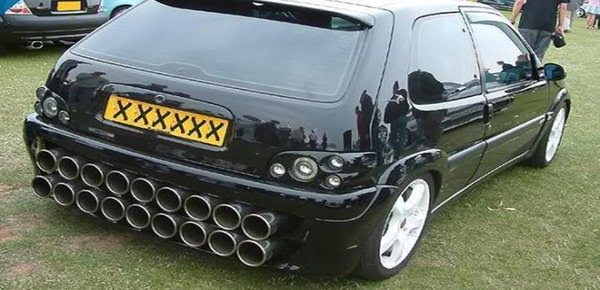Does Pimping Your Ride Add Value To It?
Table of Contents
Thinking of turning your boring-looking sedan into a sportier, better performing car? It definitely is cool and can potentially improve your driving experience, but does it actually enhance your car’s resale value?
Modification in this case is the use of aftermarket performance parts and accessories to either enhance a car’s performance or aesthetic view.
For those who are a fan of car modification, we are here to break the news to you — and it’s not good — the modifications do not increase the value of your here. Here’s why:
People would rather buy a better car for the same amount
A re-conditioned Mitsubishi Evo 10 is sold in the RM 200,000 range. Now, if you were to buy a Mitsubishi Lancer and spend enough on it to make it just as awesome as the Evo 10, your modified car will still not be perceived to be as amazing as a stock Evo 10.
This is simply because Mitsubishi have an arsenal of the best automotive engineers and tons of resources (read: money, research facilities, know-hows and proprietary knowledge) and dedicated all of them into developing a purposed-built performance car.
Meanwhile, bolting on turbo chargers and installing the best tyres the aftermarket has to offer are just not the same as the innovation and the science that Mitsubishi engineers have invested into the Evo 10, which explains why your modified Lancer will never match to the Evo 10 in perceived value.
For the same price a buyer would rather buy the Evo 10 instead of the heavily modified Lancer even though it has the best performance parts on the market (which could very well have cost more in total than the stock Evo 10).
Your car has shorter lifespan
Mass-produced economical cars are not designed and built to perform like a supercar, thus they lack the engineering to handle the stress load like a performance car can.
Our day to day cars are designed to be functional, fuel economical and long-lasting; while performance cars are designed, well, for the sole purpose of performance.
For instance, at scratch supercars are already given advance materials and high avant-garde parts by their manufacturers: such as carbon fibre on the car’s chassis to reduce weight and improve high stiffness and tensile strength, self-ventilating carbon ceramic brakes to prevent overheating from braking at very high speeds, forged magnesium alloy pistons to perform under extreme racing conditions and many other features, all of which are irrelevant for normal daily commute.
By bolting on turbo chargers and bigger tyres on a normal stock car, you are forcing the car to work and perform beyond what it was designed for, which in turn wears out the car’s lifespan considerably much faster.
Simply put, by design a stock passenger car cannot handle the extra stress and workload like a supercar does, and modifications could break the car in half, literally.
Maintenance cost is much higher
Hooked a turbo charger to your car? You’ll see yourself visiting the mechanic more frequently now.
As you add more modifications to a car, you’ll find spending more to maintain the many more parts installed to your car. One of the issues you may face is maintaining the worn out engine and other parts that need to be changed more frequently.
Performance parts will cost more compared to stock parts, thus replacing them will be costlier too.
It will definitely cost more to own a sports car due to the higher maintenance cost, road tax and fuel consumption.
Most importantly, modifications affect your car insurance premium too.
According to Persatuan Insurans Am Malaysia (PIAM), disclosing car modifications will result in higher premiums charged by the insurer as a modified car may increase the risk exposure. In the cases of extreme car modifications, the insurer may even reject your insuring your car.
Even if you keep mum about it, the insurer has the right to provide no compensation to any claims made!
For cars that are still under the manufacturer’s warranty, any car modifications will render the warranty void.
To add salt to the wound, those shiny sports rims are known to attract thieves, hence, adding more cost to get them replaced.
The above examples are modifications that are meant to boost the performance of your car. Add-ons like navigation system, leather seats and linings, reverse cameras or sensors and window tints are generally accepted by the public as they add value to a car.
The reasons why these modifications are more valuable because they enhance the functionality of a car, and also added a touch of luxury into it.
For example, installing anti-lock braking system (ABS) to a non-ABS car makes the car safer, while sound-proofing creates a more comfortable driving experience.
The idea is to only include modifications that are likely to be accepted by the masses, which are all potential car buyers that influences the car market value.
For those unique, and less accepted modifications, you may only be able to attract car enthusiasts or people who know how to appreciate car modification to pay top money for your investment.
Different people have different preferences towards car modifications, thus finding a potential buyer will be harder, and it will take longer to finally sell your car.
The likelihood of car modifications lowering resale value of your car is definitely way higher than the other way around. However, looking at it from a different perspective, if the whole point of modifying your car is to improve driving pleasure and satisfaction then by all means, keep at it!
[sc:testallianz]









